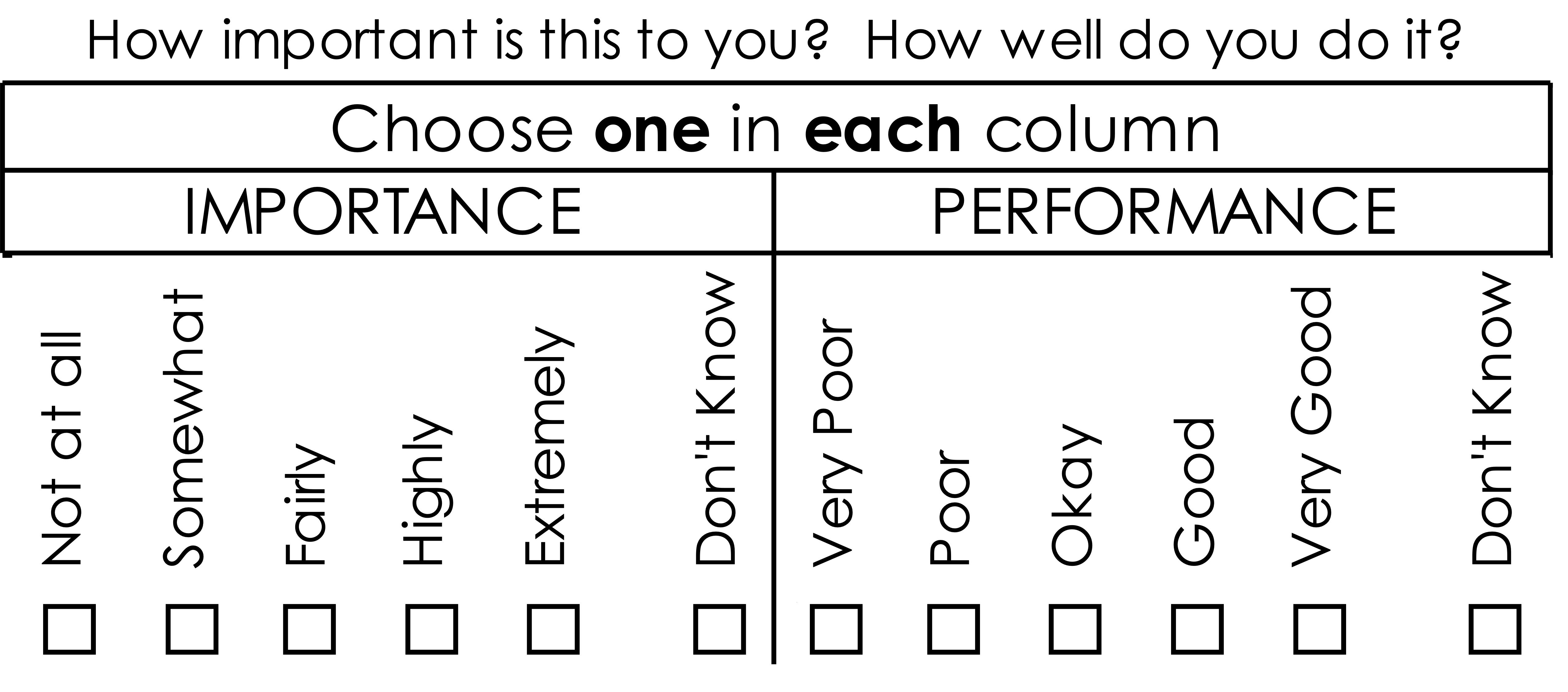Make a To Do List that Let's You Know What to Do Next
- Home
- Basic Productivity Skills
- Make a to Do List
Make a to do list. For most leaders, executives, and senior level professionals, it DOES matter. Really.
Having a properly prepared daily work list can be a simple and effective time management tool. With disciplined use, it can help you stay on track and minimize distractions.
The key to developing that list is to make sure that those items you highlight as priorities truly are the priorities. It is a sad fact that many people give a high percentage of low priority items a high priority status.
There are probably two or three list items that will make the biggest difference. Do them first. Review your list throughout the day and re-prioritize as needed.
"The short and long of it is that if we don't dream, we have nothing to strive for. When we stop dreaming and reaching, our God-given talents don't lie in some bank gaining interest so we can use them when we need them. On the contrary, when we stop pursuing dreams and “impossibilities”, our souls dry up."
Bill and Kathy Peel, Discover Your Destiny
Five Days of Coaching as You Make a To Do List

DAY ONE
Determine to have a plan and work from a list. Make a to do list. And bear in mind that the list needs to work for you.
If you are lousy at making a list that can clearly differentiate between a true priority and a lesser task, access a reliable time management resource - read a good book about it or work with a coach who has some expertise. The to-do list is your most important tool of the day and has to be well thought out or you will be busy but ineffective.
The Coach asks:
- How willing are you to gain control of your daily task list management?
- What has stood in the way of gaining the control you wish?
- How much time have you traditionally put into making a to do list?
- Where could you get the information you need in order to make the best use of a daily to do list?
- In a very practical way, what format of to do list will serve you best? An app? Word? Excel? Paper?
DAY TWO
Review your default method of creating your daily to-do list. Is it written? Or is it in your head? Do you start with the easiest item first or the hardest? Is most of your day spent putting out to-do list fires or advancing significant priorities? What fundamental changes need to be made to be more effective in accomplishing the few vital things that will reach the most significant outcomes?
The Coach asks:
- How much time can you dedicate today to thinking about and working on to do list management?
- What is your answer to each of the above questions? How did you arrive at that practice or behavior? What needs to change to work differently?
- When is the best time of day to do make a to do list that will guide your activities for the day? The day before? The night before? The morning of that day before things really start rolling? Twice daily? Some other time?
- Draw an arrow to show your intention of moving from "this default practice" to "this more effective practice."
DAY THREE
Do you have a strategic plan? What are you working to achieve? What matters? What are today's priorities? Put these guiding lights clearly in place and you will have something to regularly check your to-do list against. Today, get clear on your life, work or organizational plan and how your daily to-do list either moves it forward or holds it back.
The Coach asks:
- How aligned is your daily to do list with your longer term plan?
- How should the two be aligned to serve you well?
- In what specific ways does your to do list lead you closer each day to achieving longer term goals?
- As you look at the last 5 - 10 days of to do lists, where do you see your larger goals reflected?
DAY FOUR
Use the simplest method of recording and communicating information that works for you and aligns with the needs of those around you who also need to know.
The Coach asks:
- How brief or detailed are your to do lists? How does that help or hold back execution?
- If your to do list needs to be communicated to others, will they "get it?" Do they need to "get it?" What, if anything needs to change?
DAY FIVE
Review today's to-do list. Does it reflect priorities? Is it a stress maker or a stress buster? Celebrate your great to-do list. Adjust your attitudes and methods where needed.
The Coach asks:
- When you make a to do list, most often it should come with a supportive attitude. Checking your list today, is it a stress maker or a stress reliever? What does that tell you?
- You've been working on improving your to do list for several days now. How is it going? What additional help or resources might you still need to get it to where you want it?
- Take the time to celebrate the "wins" your list is giving you.
A Discerning Person Keeps Wisdom in View

As a Christian Executive Leadership Coach I encourage any Christian leaders to reflect on God's Word to add to their wisdom.
- Mt 10:5 - 8 These twelve Jesus sent out with the following instructions: proclaim this message ... heal the sick ... raise the dead ... cleanse those who have leprosy ... drive out demons. ...
- Pr 17:24 A discerning person keeps wisdom in view, but a fool's eyes wander to the ends of the earth.
- Php 1:6 .. being confident of this, that he who began a good work in you will carry it on to completion until the day of Christ Jesus.
- 1 Cor 9:26 Therefore I do not run like someone running aimlessly; I do not fight like a boxer beating the air.
If you are a leader, executive, or senior level professional looking to work with a Christian Executive Coach, I invite you to connect with me here.
If appropriate, we can meet by phone or Zoom to discuss your situation.
Record Your Progress
This is your opportunity to track your progress. Start by asking yourself how important this practice is to you? Record the importance as - not at all, somewhat, fairly, highly or extremely.
Now next to it ask yourself how well you carry out this practice. Record your performance as - very poor, poor, okay, good or very good.

The things we track, we pay attention to. Across time, come back and record your new results. You will find that as you are intentional about making improvements, you will bump your "score" up higher.
This is significant. Don't miss the opportunity to acknowledge your success, and use it as a springboard for making even further gain.
Notes
Almost every leader or executive I talk to, uses a slightly different tool for making a to do list. Literally there are hundreds of them. You will need to take the time, and do some experimenting to find the right platform or tool that will work best for you. And there's the key ... make it work for you. It's not somebody else's to do list. It's yours.
Like tools, there are many books, articles and podcasts on how to make a to do list that works. Like everything else, do an online search and you'll find some superb resources.
Contact me here Privacy Policy
© G.E.Wood and Associates. All Rights Reserved in all media.
G.E. Wood and Associates is an international coaching firm registered in Ontario, Canada
142 Pratt Crescent, Gravenhurst, Ontario, Canada, P1P 1P5